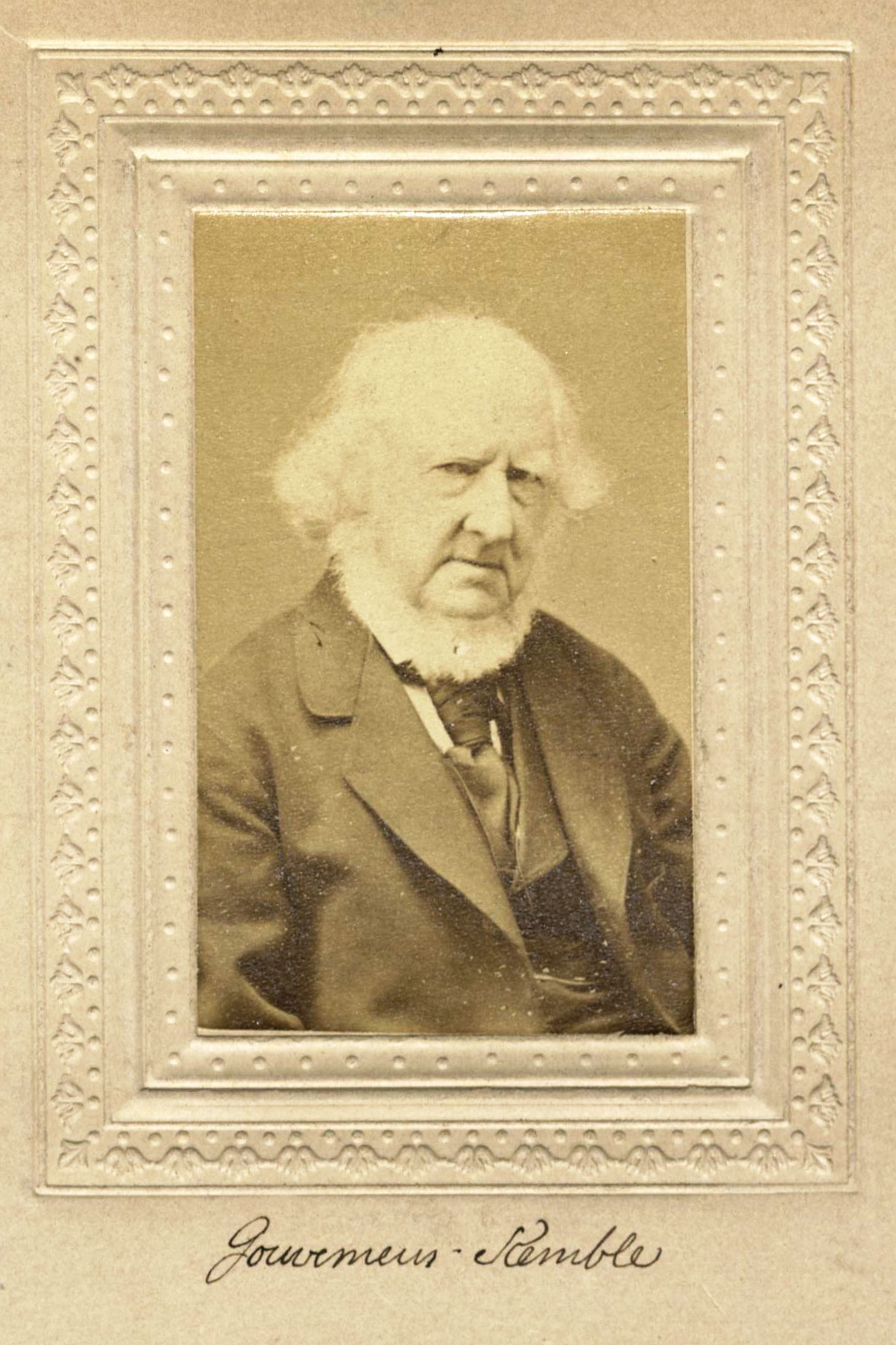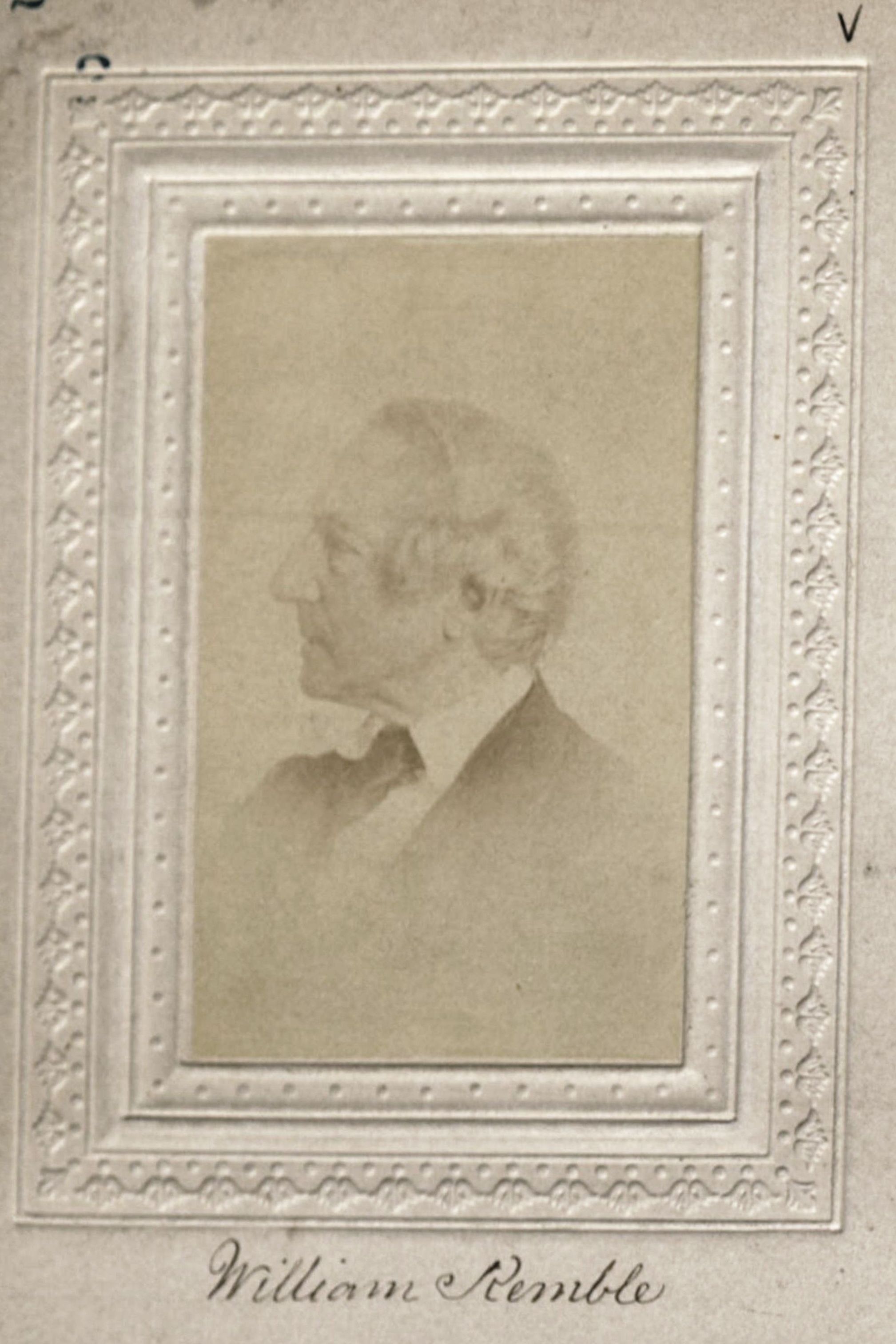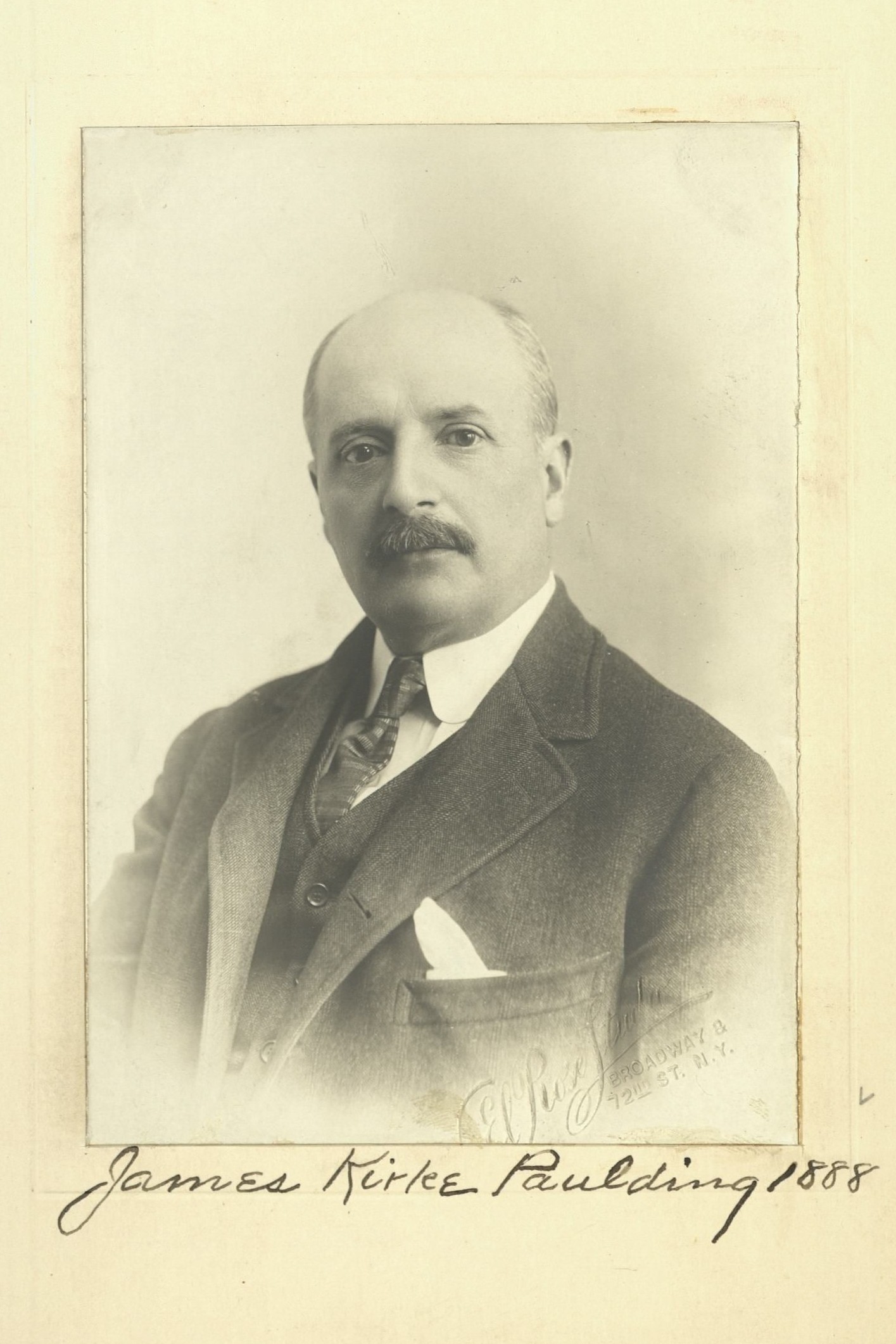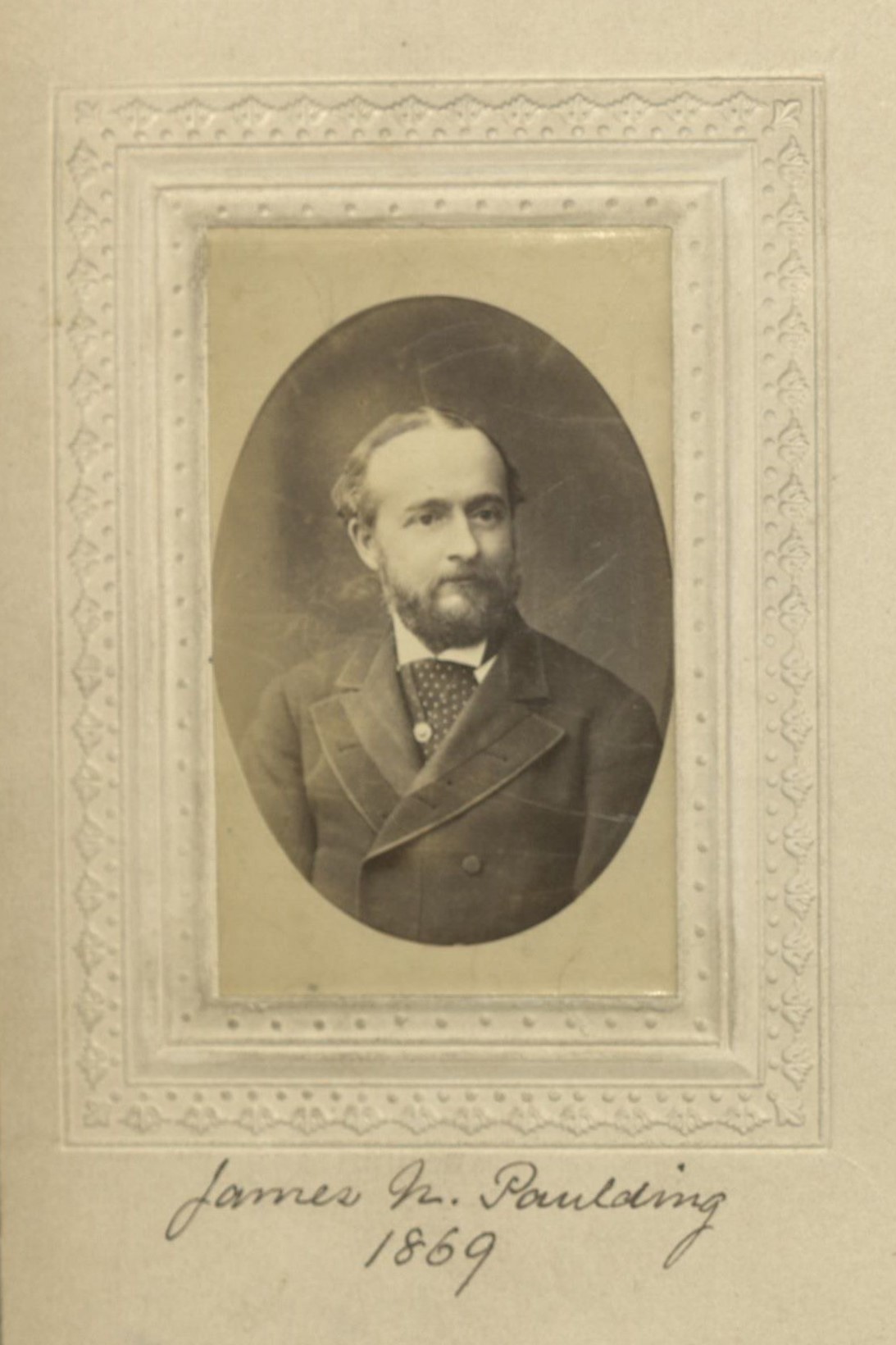Member Directory,
1847 - 1922
Gouverneur Kemble
Manufacturer (West Point Foundry)/Congressman
Centurion, 1847–1875
New York (Manhattan), New York
Cold Spring, New York
Age sixty
Cold Spring, New York

Archivist’s Notes
Brother of William Kemble; uncle of Peter Kemble, James N. Paulding, and William I. Paulding; great-uncle of Peter Kemble and James Kirke Paulding
Century Memorials
Among those who have been removed by death the Club has suffered the loss of its senior member, Mr. Gouverneur Kemble, and also of two eminent Artists, as well as of several associates conspicuous for long continued and important services to the community, and particularly for the intelligence and liberality displayed in their devotion to Art.
Augustus R. Macdonough
1876 Century Association Reports
Mr. Gouverneur Kemble was of one of the old English families of Hew York. Its members had been, during several generations, conspicuous in commercial pursuits. Mr. Kemble graduated at Columbia College in 1803. He cherished through life, amid all the distractions of business and politics, the literary and artistic tastes of his youth. In early manhood he was appointed Consul at Cadiz. His attention was attracted by the process of casting cannon, then used by the government of Spain. He acquainted himself with all its details, with a view to its introduction into the United States. The obstacles to success were many. It seems singular at this day that an American should have looked to Spain for instruction in mechanical science. Little aid could then be expected from England, where the severe penalties against the emigration of mechanics and artisans were rigidly exacted, and where, so late as 1816, Mr. John Quincy Adams, then Minister in London, was compelled to solicit an Act of Parliament permitting the construction of some mint machinery for the United States Government.
Mr. Kemble made his first experiments at Cold Spring. These proving successful, he established the foundry opposite West Point. From the casting of ordnance, he proceeded to other manufactures of iron, enlarging the sphere of his operations with the wants of the times. The establishment at Cold Spring became known throughout the country for the conscientious thoroughness of its work. Its quality has been proved by engines constructed for some of the chief waterworks and manufacturing establishments of the United States and Spanish America. At its beginning, skilled artisans were few. American iron work had not attained its present excellence, and many important machines could not be constructed in the United States. For raising the standard of an important mechanical art, Mr. Kemble may justly be esteemed a public benefactor. He was not wholly engrossed by private interests. Surrounded by numerous workmen, he was not unmindful of their sanitary and moral good. He was also an active participator in public affairs. From 1837 to 1841 he was a member of Congress, and in 1846, of the Constitutional Convention of the State of New York. It must suffice to say at present, that in public station Mr. Kemble sought no private gain for himself or for his friends. But such were not his most congenial pursuits. During the many years of his active life, he found ample opportunity for the cultivation of intellectual tastes. In the course of ninety years, he had known the most distinguished residents and visitors of Hew York. He was the friend and associate of its earlier artists and literati—of Irving, Paulding and Drake. He had grown up among a colonial generation; had seen a provincial seaport slowly rising into a great metropolis. He had known those who had been conspicuous in arms in 1776 and 1812; was conversant with local traditions, and handed them on to another generation. His hospitality was known for nearly forty years to artists and to men of science, especially of the Academy at West Point. Those who enjoyed it, preserve a lively recollection of his Saturday dinners, when social enjoyment closed the labors of the week. Anecdote and reminiscence mingled with scientific and professional discussion, and gave zest to entertainments widely celebrated, and pleasantly remembered among good things which have passed away.
As a member of the Century, Mr. Kemble deserves our gratitude as not the least active among the thirty who, with Mr. Verplanck and Mr. Bryant, gave it a foundation, and name and character. During its earlier years, he was a frequent visitor at its then humble dwelling, and partook of the enjoyment of its social hours. When, oppressed with the burden of fourscore years, he ceased from farther attendance, his kindly benevolence was not chilled, nor had he lost interest in the studies of his youth. With yet unclouded faculties, the companionship of men of scientific, literary and theological attainments was the solace of his tranquil and honored age. It may be regretted that his portrait is not among those of our founders. If we have accomplished anything in cultivating or diffusing a love of science or art, Mr. Kemble merits a share of the honor, and we may well believe that the Century is not the least benefaction of a life of liberal studies and useful deeds.
Henry C. Dorr, Henry R. Winthrop, and Augustus R. Macdonough
1875 Century Association Memorial Notices
A nephew of the British general Thomas Gage, he was born in 1786 and died in 1875. Kemble was an 1803 graduate of Columbia College and from an old New York family. He established the foundry opposite West Point and was involved in the casting of weaponry. He was later a member of Congress.
Appleton’s Cyclopedia described Kemble as “a lover and patron of art” who “made a valuable collection of paintings.” Under President James Monroe, he served as U.S. Consul to Cadiz (Spain). Washington Irving described him as “my friend of early life, always unchanged, always like a brother; one of the noblest beings that ever was created. His heart is all gold.”
William A. Frosch
“Our Original Amateurs, 2009”
Related Members
Member Directory Home-
 Peter KembleManufacturer (West Point Foundry)Centurion, 1847–1855
Peter KembleManufacturer (West Point Foundry)Centurion, 1847–1855 -
 Peter KembleArtistCenturion, 1889–1900
Peter KembleArtistCenturion, 1889–1900 -
 William KembleManufacturer (West Point Foundry)Centurion, 1847–1881
William KembleManufacturer (West Point Foundry)Centurion, 1847–1881 -
 Frederick LentePhysicianCenturion, 1872–1876
Frederick LentePhysicianCenturion, 1872–1876 -
 James Kirke PauldingGentleman/PhilanthropistCenturion, 1888–1943
James Kirke PauldingGentleman/PhilanthropistCenturion, 1888–1943 -
 James N. PauldingManufacturer (Iron)Centurion, 1869–1898
James N. PauldingManufacturer (Iron)Centurion, 1869–1898 -
 William I. PauldingAuthorCenturion, 1847–1850s
William I. PauldingAuthorCenturion, 1847–1850s



